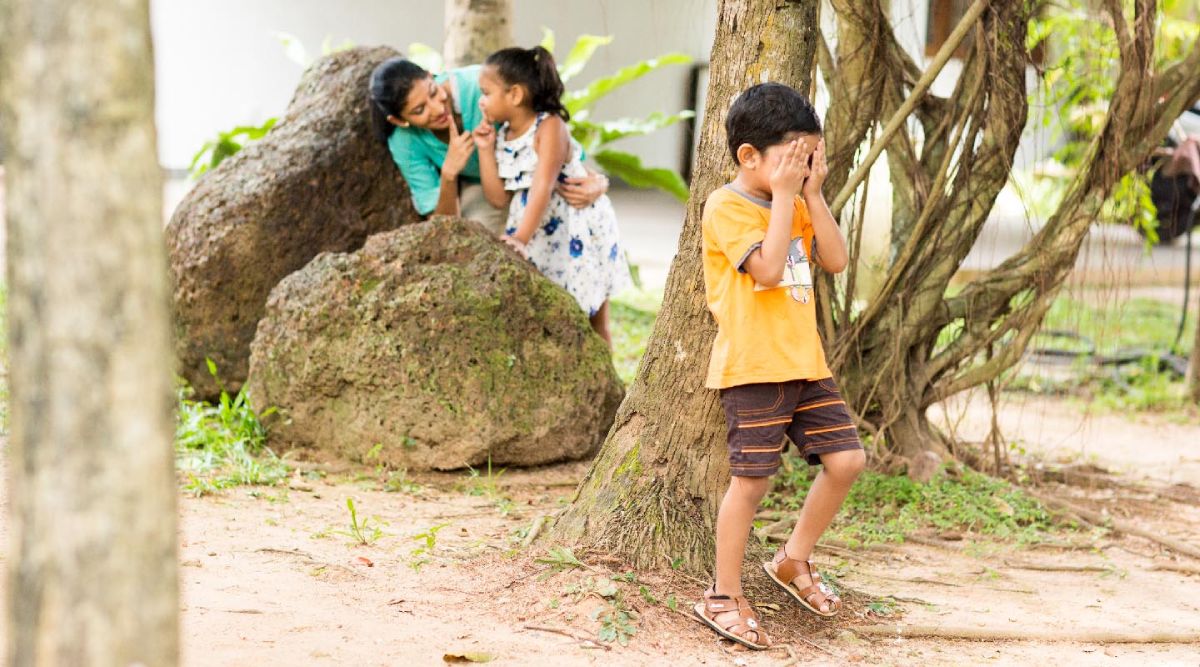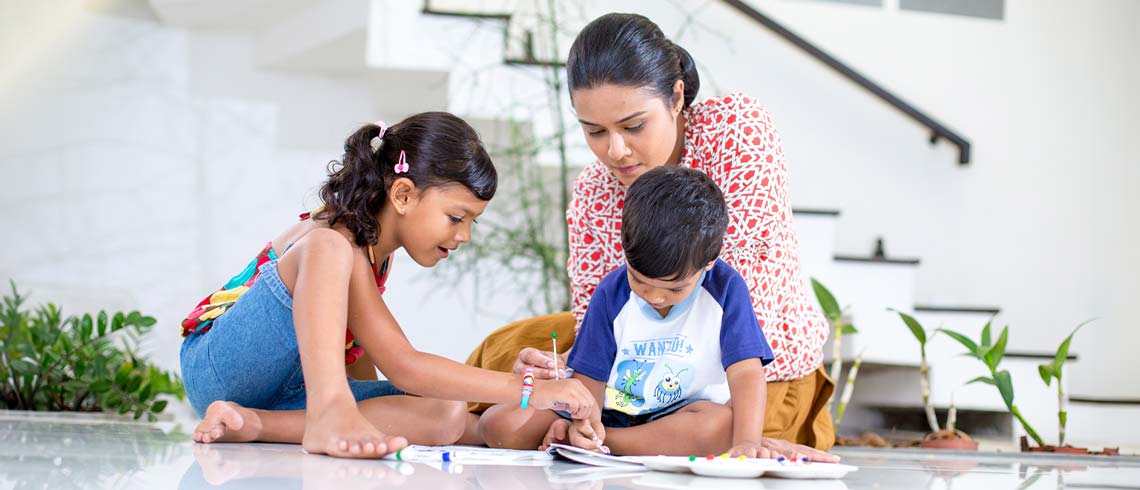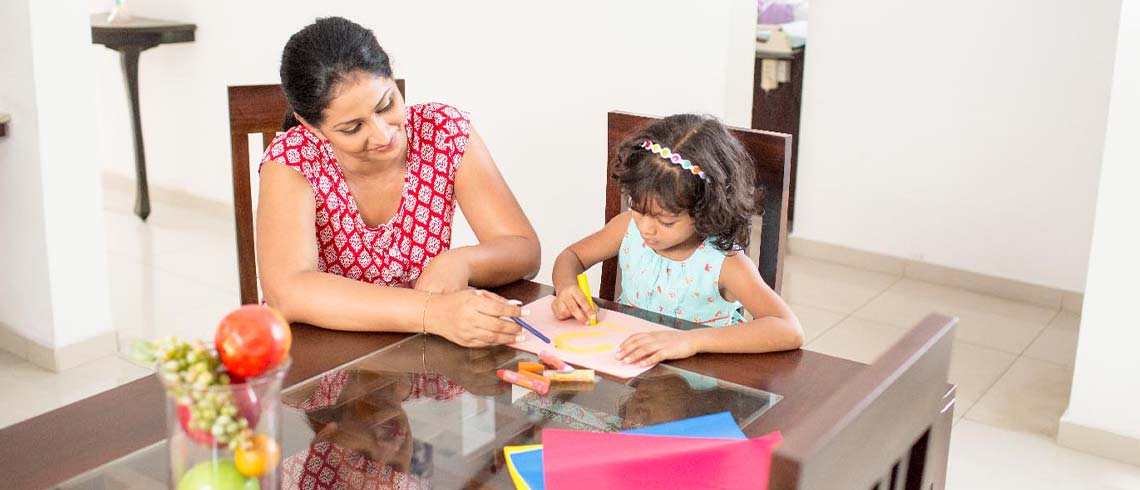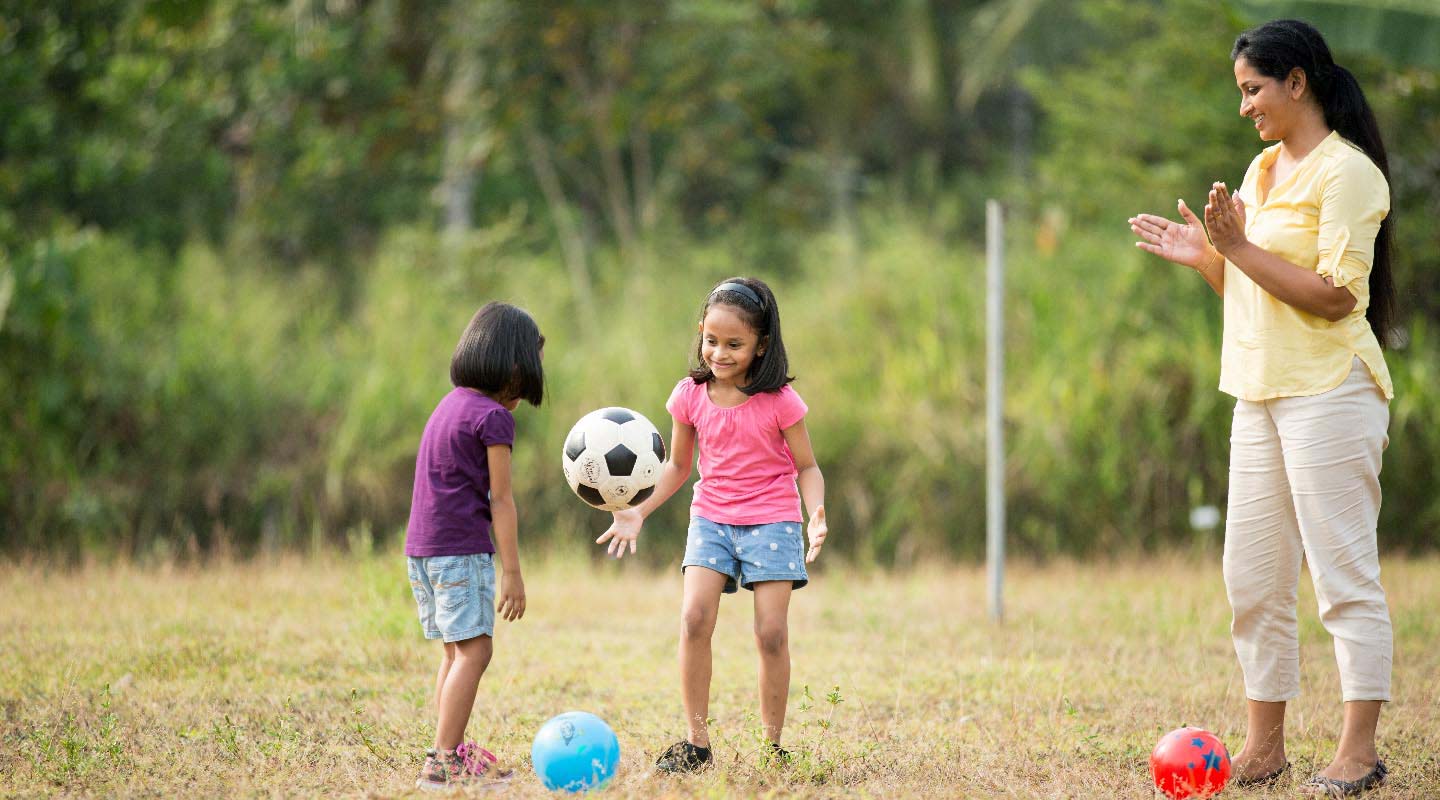























Play based Learning: New way of Learning

Dinusha Manjarie Wickremesekera
Work from Home. School at home. Schooling without teachers and peers on-site can be very challenging. While the syllabi are being covered, interval times are no longer the same. Intervals are an important part of a school day. Children play together. From a young age, this is the established pattern. There is a reason for this within the school design – playing help with academic learning as it does with social-emotional learning.
Longitudinal research studies conducted by Harvard University has shown that a key indicator for success in life outcomes are the connections that make. Good relationships provide a secure base making people happier, live longer and achieve set goals. Playtime more than any other time helps to develop these friendships, in a more relaxed environment.
Currently, with the stress of the pandemic, the biggest issue is that we can’t relax – or even have less time to relax. Schooling is different to what is understood to work – there is an even greater tendency to emphasize academic achievement. Playtime is less not only because of this – but playtime is also shorter because there are no same-age peers to play with. There is less environmental stimulation, movement and interaction.
 A child’s development is stimulated by the environment. Movement and activity get them excited and joyful learning how to do things, as well as physically tired enough to fall asleep giving them the essential rest. Interaction with peers, making friends, fighting and making up stimulates their social and emotional development.
A child’s development is stimulated by the environment. Movement and activity get them excited and joyful learning how to do things, as well as physically tired enough to fall asleep giving them the essential rest. Interaction with peers, making friends, fighting and making up stimulates their social and emotional development.
During play, children use their imagination to create situations, overcome challenges. Even the smallest of spaces is enough to play. They are practising skills they are learning and interacting with others.
Play stimulates development and learning. Learning doesn’t happen only in a classroom instruction based context. Learning in a classroom also doesn’t happen independently of everything else. The development of a child follows a particular method, first the senses and the physical body them then the intellectual, social and emotional development. The body is intrinsically tied to the mind and the mind and body develop together.
Play because it engages both body and mind at the age and level of development appropriate means – it is a great stimulus for learning – both for learning new things and mastering what is already known.
You might have noticed how during play children move from nervous to actively engaged losing self-consciousness. At this time you see no anxiety. Play also keeps children engaged on a task for quite a while developing their ability to concentrate. When anxiety is less and concentration is more – a child and even an adult is more ready to learn.
Play can be child-led. This way they will direct their attention and stay on task. Watching a child play like this you will also get to know a lot about the child – his or her preferences, attention span. Imagination is active. Electronic devices limit this. Children are naturally curious and exploration is good stimulation.
Play can also be rule-based. Rules are good because they provide predictability and it is also a means of guiding behaviour. Either way, children will explore their environments and learn how to connect and interact with others.
Drawing and painting, music and dance, making puppets and puppet play (you can find very easy ways to make puppets online), and clay. Playing outdoors if it is possible is also good.
Engaging with the environment is very positive – not just for our well-being but also for developing values that lead to taking care of the environment.
Let play build resilience and well-being.
This will go a long way in these uncertain times for you and your child(ren). Enjoy this precious time when they are young, and have fun as a parent.
Tip: When you observe a child play, you will see a child express himself or herself, what they would like to do, a range of emotions particularly happiness and joy. Happy children play and children who play are happy.
Share With:
Recommended Articles


Nimali Buthpitiya
Support your Child’s Language Development during First Five Years!
Language skills during the early years and the next years of a child’s life play a crucial role. It helps them understand what is happening around them, communi...
Read More

Nimali Buthpitiya
Know More About Your Little Champs’ Brain Development
Children are born with an inner drive to learn. They learn about themselves, others and about the world around them each time you cuddle them, take them for a w...
Read More

Dinusha Manjarie Wickremesekera
Importance of Play
“Play is not a luxury. Play is a necessity.” Kay Redfield Jamison Development Psychologist, David Elkind states that there are three requi...
Read More